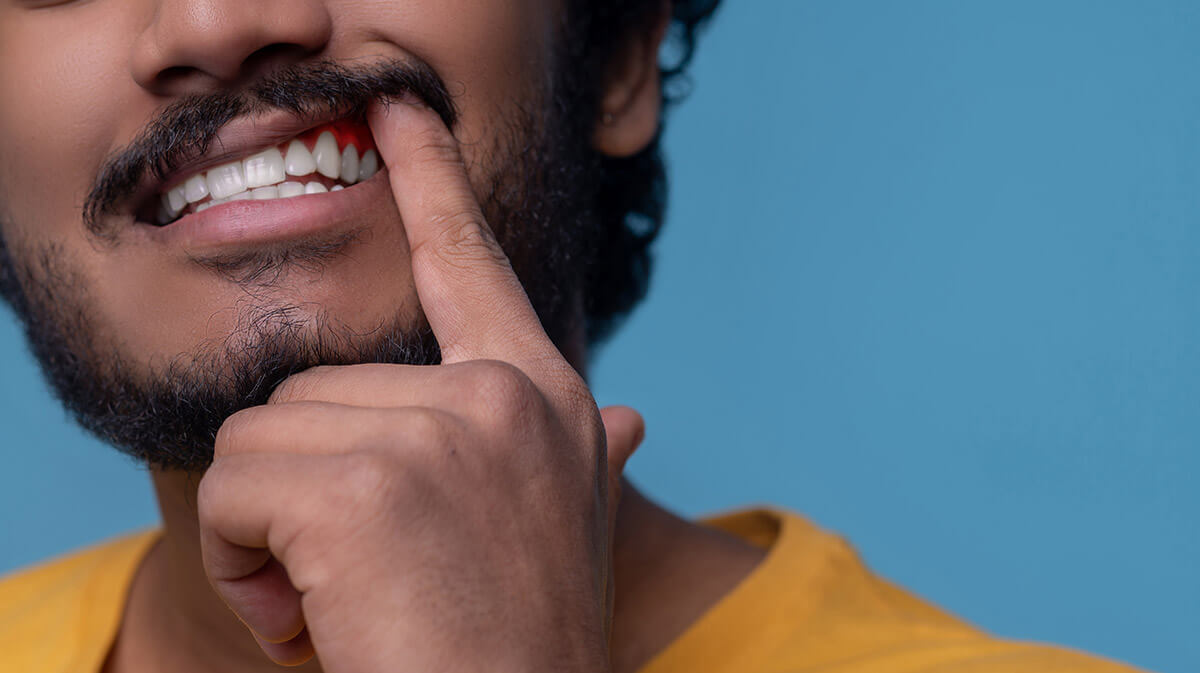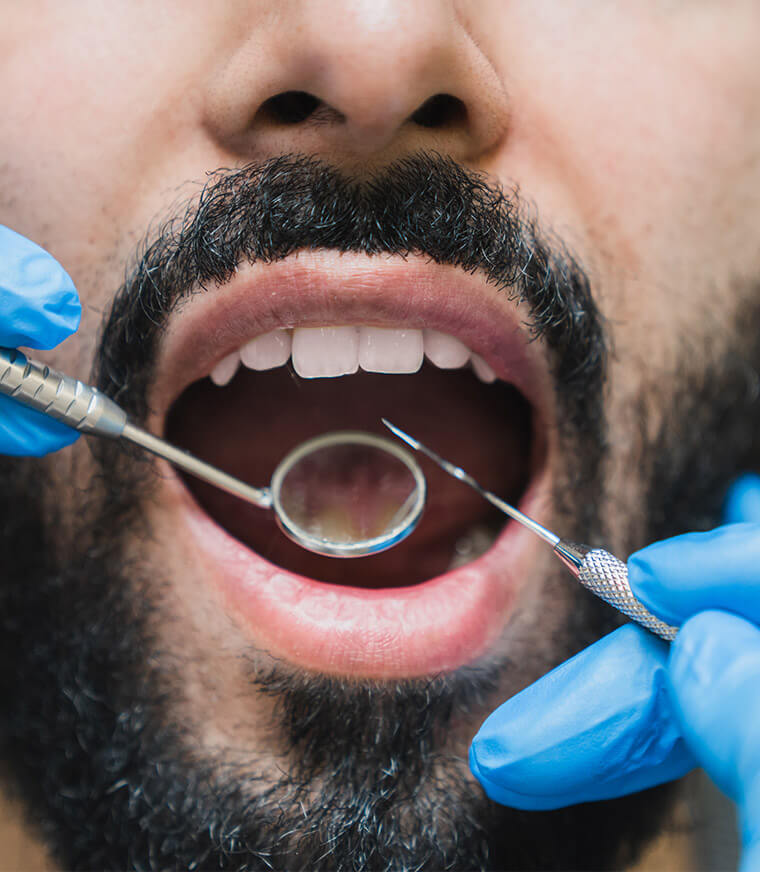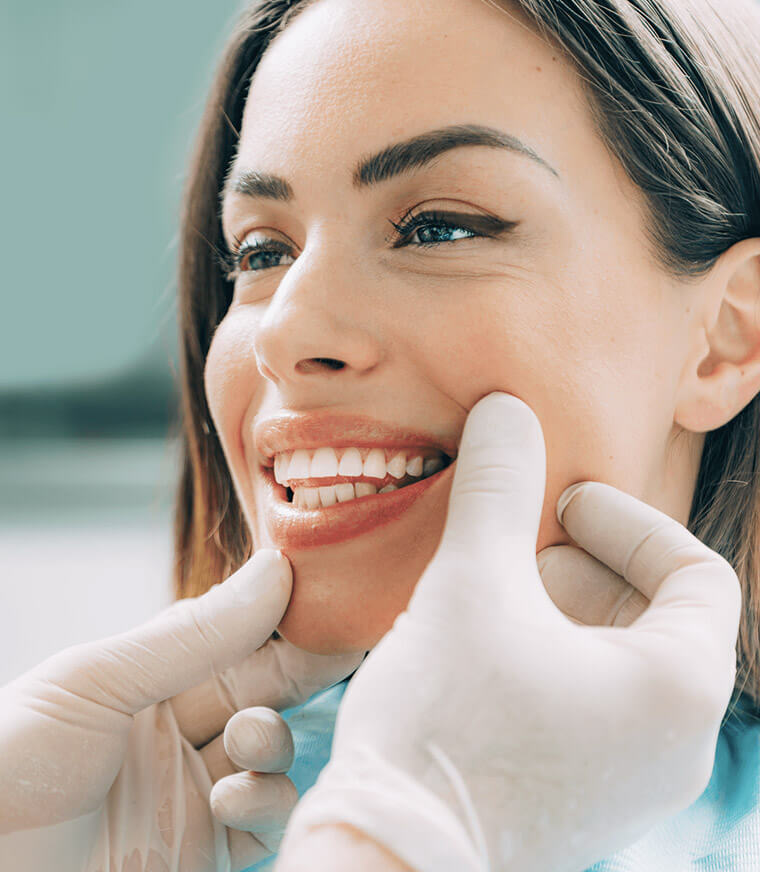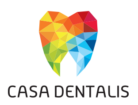Periodontology
Periodontology deals with the diagnosis and treatment of diseases of the periodontium. The most common disease of the periodontium is called periodontitis. Periodontitis (gum disease) is one of the most common diseases in dentistry and affects about 30% of the population.
What happens during periodontitis?
This disease results in largely irreversible changes to the gums and jawbone. If left untreated, gingivitis can lead to tooth loss in the long term. Healthy gums are essential for the Preservation of own teeth just as important as the Caries prevention.
What are the triggers for periodontitis?
The triggers of periodontitis can be mainly bacterial plaque. These are mainly caused by insufficient tooth cleaning. In the field of periodontology, however, other factors besides oral hygiene also play an important role.
Factors favoring periodontitis include:
Hormonal changes during pregnancy increase the blood supply to the gums and make them more susceptible to bleeding and therefore inflammation of the gums. If serious periodontitis occurs, the unborn child is also affected. Because Periodontitis can lead to miscarriages and premature births. So if you are planning to become pregnant or are already pregnant, an appointment with your dentist is crucial for the health of you and your baby. Our dental health and pregnancy experts from CASA DENTALIS will be happy to advise you on the further procedure.
How does periodontitis develop?
What are the symptoms of periodontitis?

Our periodontics dental team generally cites the following signs of incipient gum disease:
- Regular bleeding gums
- Pain sensitive gums
- Swelling of the gums
- Receding gums that make the teeth look visually longer
- Taste irritations
- Bad breath

If you notice the first signs of periodontitis, it is advisable to make a consultation appointment promptly at one of our locations in Berlin Lichterfelde, Wilmersdorf and Steglitz-Zehlendorf. If you notice the first signs of periodontitis, it is advisable to make a consultation appointment promptly at one of our locations in Berlin
Often, targeted countermeasures in the early stages can avoid lengthy periodontitis treatment.
If left untreated, the inflammation can lead to bone recession and, at an advanced stage, to tooth loosening and even to Tooth loss lead.
As is often the case in dentistry, it is not worth waiting.

Depending on the stage of the gum disease, the procedure of a professional periodontitis treatment may vary. In general, however, the procedure at CASA DENTALIS consists of three components:
The pretreatment includes a professional teeth cleaning by a prophylaxis expert, instruction in thorough oral hygiene at home, measurement of gum pockets by your dentist in Berlin, and dental X-rays.
The goal of periodontal treatment is healthy gums and strong connective tissue for a healthy hold of the teeth. Our dentists are happy to provide you with advice and support for this.
If you are diagnosed with periodontitis, your dentist Berlin can initiate various countermeasures as quickly as possible to prevent further damage. Make an appointment today for your individual consultation at one of our practices in Lichterfelde, Wilmersdorf and Steglitz-Zehlendorf. Take advantage of our free callback service or our Online appointment and book easily and conveniently your desired date. We look forward to seeing you! If periodontology, then CASA DENTALIS.

